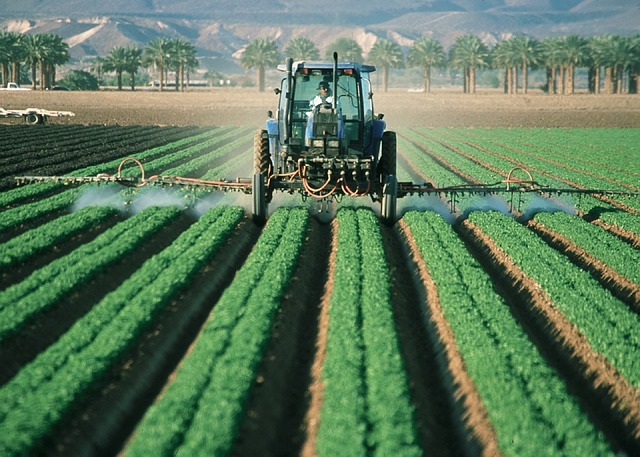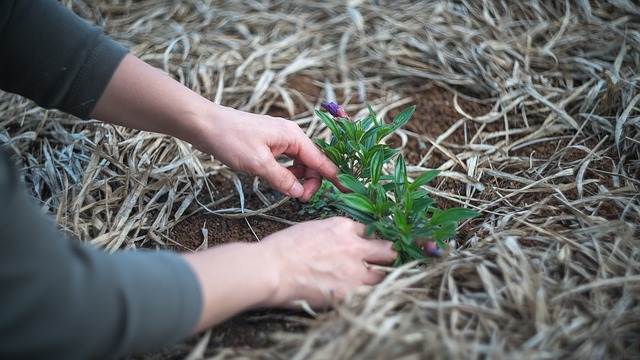Rounding Up Lawsuits about the Roundup-Cancer Link
“Probably carcinogenic to humans.” That’s what the International Agency for Research on Cancer (IARC) said about glyphosate, an active ingredient in herbicides like Roundup. Now, hundreds of farmers, landscapers, and workers across the nation are filing lawsuits against Monsanto, the manufacturer of Roundup. The Cancer Link Different cancers have been linked to exposure to glyphosate […]

January 9, 2017

“Probably carcinogenic to humans.”
That’s what the International Agency for Research on Cancer (IARC) said about glyphosate, an active ingredient in herbicides like Roundup.
Now, hundreds of farmers, landscapers, and workers across the nation are filing lawsuits against Monsanto, the manufacturer of Roundup.
The Cancer Link
Different cancers have been linked to exposure to glyphosate and Roundup:
- Non-Hodgkin lymphoma
- Lymphocytic lymphoma
- Chronic lymphocytic leukemia
- B-cell lymphoma
- Colon cancer
- Kidney cancer
- Liver cancer
- Melanoma
- Pancreatic cancer
- Thyroid cancer
Scientists have been researching the link between non-Hodgkin lymphoma and exposure to pesticides like Roundup for nearly three decades, according to the International Journal of Environmental Research and Public Health.
One study showed that glyphosate exposure was associated in particular with B cell lymphoma. Many studies are now showing that even “infinitesimal (parts per trillion range) concentrations” of Roundup are carcinogenic.
Popularity of Roundup and Roundup Ready Seeds

Between 1974 and 2001, 85 to 90 million pounds of Roundup were used in American agriculture.
In the U.S., in 2010 alone, Roundup Ready seeds were planted in:
- 70 percent of corn fields
- 70 percent of cotton fields
- 90 percent of soybean fields
Roundup remains one of the most popular weed killers on the market. More than 50 percent of American croplands use products containing glyphosate.
Roundup Lawsuits
Monsanto

Monsanto is the manufacturer of Roundup. The company continues to claim the International Agency for Research on Cancer is wrong and that glyphosate is perfectly safe. Scientists at Monsanto claim that glyphosate targets an enzyme found only in plants and is therefore safe for humans to use. The company cites a 2016 report by the Cancer Assessment Review Committee of the Environmental Protection Agency (EPA) that claimed glyphosate is “not likely to be carcinogenic to humans.”
But in 2015, according to CNN, the former chairman of the EPA’s Cancer Assessment Review Committee spoke with Dan Jenkins, Monsanto’s US agency lead at the time, and offered to “kill” an independent investigation into the toxicity of glyphosate. Although the independent investigation continues to this day, one attorney representing the plaintiffs against Monsanto argued that this exchange shows an “inappropriately close relationship” between Monsanto and the EPA official, who has since retired.
Monsanto was also revealed to have considered another rather “inappropriate” course of action in 2015 in the month before the IARC released its report calling glyphosate “probably carcinogenic to humans.”
William F. Heydens, Monsanto executive, emailed one of Monsanto’s toxicologists, Donna Farmer, suggesting that the company should ghostwrite parts of a paper evaluating the overall safety of glyphosate. “[W]e would be keeping the cost down by us doing the writing,” Heydens wrote, according to CNN. He hoped that scientists unaffiliated with Monsanto “would just edit & sign their names so to speak.” Monsanto maintains today that it has not ghostwritten any papers concerning the safety of glyphosate, but just like the exchange between the Monsanto employee and the former EPA official, some people believe the situation reflects poorly on the company.
Plaintiffs

Regardless of what Monsanto says, plaintiffs are telling a different story.
More than 800 migrant farm workers, landscapers, horticultural workers, and farmers are filing suits against Monsanto because they have developed cancers associated with glyphosate.
Christine Sheppard is one of them. Sheppard used to live and work on her coffee farm in Hawaii, spraying her crops with Roundup for five years. She has since had to move to California in order to get better treatment for her stage IV large-cell lymphoma. She has had to use most of her 401(k) in order to pay her medical bills.
The lawsuits aren’t limited to career farmers, either.
One woman, Yolanda Mendoza, underwent intense chemotherapy for non-Hodgkin lymphoma for simply using a backpack sprayer of Roundup once a week on her one-acre property, according to CBS News.
There are two different kinds of Roundup lawsuits: individual cases and mass torts.
A mass tort claim is a grouping of individual personal injury claims filed against the same party. Unlike a class action lawsuit, which consists of one lawsuit representing hundreds or even thousands of claimants where a lump sum settlement is distributed among members of the class (typically leaving individuals to recover only a pittance of compensation for their injuries), mass tort claims are small groups of individual lawsuits seeking individual claims.
Product liability law ensures that manufacturers are held responsible if their products are defective or result in injury, disease, or loss. If you or a loved one has developed cancer due to Roundup exposure, call Hensley Legal Group today or contact us online.
Available 24/7
Free Case Review
You won’t pay any fees until we win your case.
It’s easy - you can: